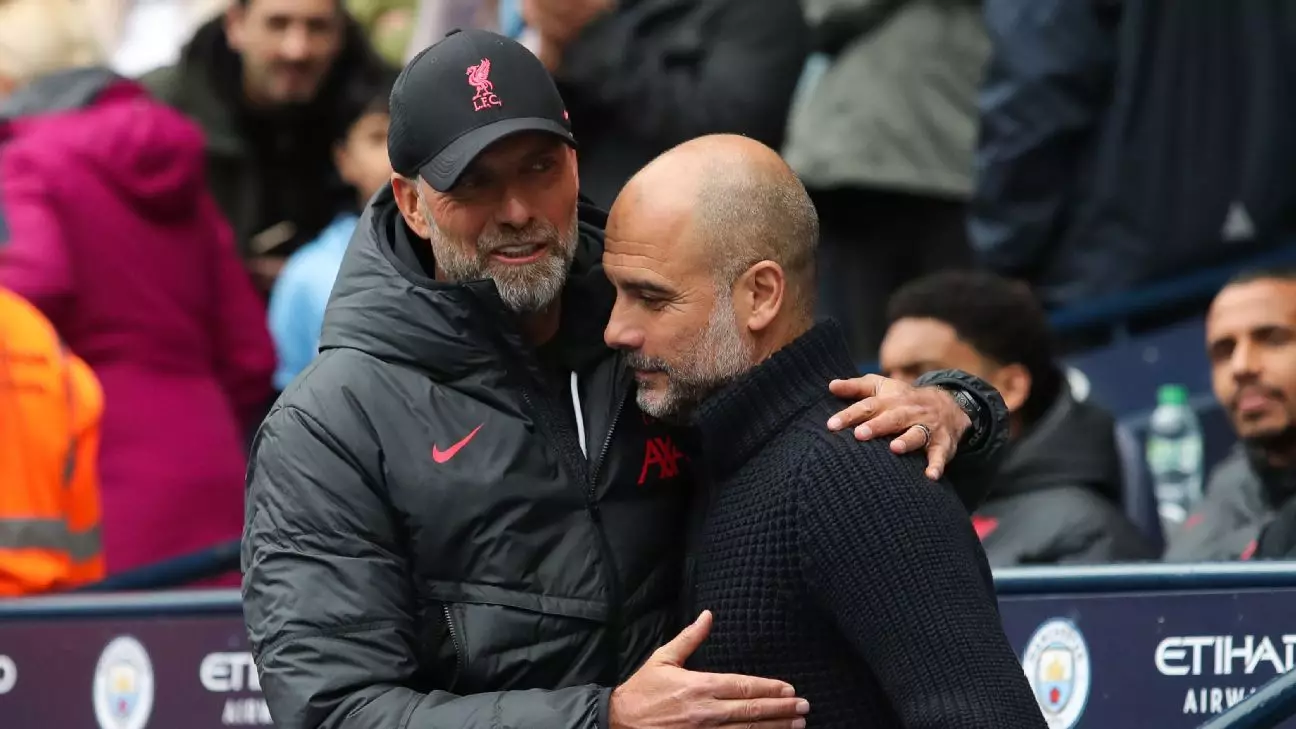The footballing world is currently engulfed in discussions surrounding financial integrity, particularly concerning elite clubs like Manchester City. The controversy stems from the Premier League’s referral of the club to an independent commission due to 115 alleged breaches of financial regulations dating back nearly a decade. As narratives unfold, figures like Jürgen Klopp, former manager of Liverpool, have expressed strong views that not only highlight the implications of such breaches but also touch upon broader themes of fairness in football.
In a recent statement, Klopp humorously suggested that he would celebrate if Manchester City were stripped of their titles. His remarks, made during his first public engagement as Red Bull’s head of global soccer, posited an intriguing scenario: a party in Mallorca, where he would be ready to buy the drinks for friends who joined him. This whimsical notion underscores the longstanding competitive rivalry between Liverpool and City, who, under Pep Guardiola, have dominated the English Premier League in recent years. Klopp’s witty comment reflects the emotions many sides feel when they believe that integrity has been compromised in pursuit of success.
However, while Klopp’s suggestion of a celebration may seem lighthearted, it carries a weight that speaks to the deeper issues in football. The journey towards determining the validity of the charges against Manchester City has far-reaching implications, not only for the club but for the Premier League as a whole. The outcomes of such proceedings could reshape the competitive landscape of football.
The allegations against Manchester City revolve around a recurring theme in contemporary football: financial fair play (FFP). Implemented to encourage financial prudence and maintain competitive balance, FFP regulations have, ironically, sparked a series of controversies. Manchester City has maintained its innocence, a stance that complicates the situation and raises questions about the enforcement of financial regulations in football.
The ongoing saga serves as a reminder that while clubs strive for greatness, the means through which they achieve success must be kept in check. Klopp’s comments about City can be viewed as a critique of systemic issues within the sport, where financial ethics are often overshadowed by the allure of trophies and accolades. The potential consequences for Manchester City could serve as a benchmark for future enforcement, signaling to all clubs that financial integrity must be prioritized.
As the narrative shifts back to Liverpool, Klopp, now under a different banner at Red Bull, also addressed the uncertainties surrounding key players whose contracts are set to expire. Trent Alexander-Arnold, Mohamed Salah, and Virgil van Dijk are pivotal to Liverpool’s ambitions, yet their futures remain uncertain as discussions continue. Klopp’s humor during the press conference about his waning involvement with Liverpool’s contract negotiations speaks volumes about the changes the club is undergoing. It suggests a period of transition—one where Klopp’s legacy and the club’s future are intertwined with the decisions of current players.
Ultimately, Klopp’s desire for all three players to renew their contracts reveals his understanding of their importance to the club’s identity and competitiveness. Salah, in particular, is noted as Liverpool’s greatest striker of the modern era by Klopp, highlighting the emotional connections that players have with clubs and fans alike.
Jürgen Klopp’s reflections on Manchester City’s potential penalties and the ongoing contract situations of three key Liverpool players serve as a fascinating convergence of themes in the world of football. As discussions of financial integrity, competition, and player loyalty unfold, they remind us that the beauty of the game is often clouded by the pressures of modernity.
The situation emphasizes the need for continued vigilance in ensuring that financial regulations are adhered to and that the integrity of football remains intact. Klopp’s comments may resonate with many fans, igniting discussions about what it means to compete fairly in football today. Whether it results in a celebration in Mallorca or a shift in the competitive landscape remains to be seen, but the implications are profound and lasting.


Leave a Reply